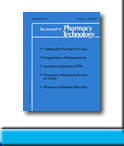 |
 |
ANGIOTENSIN-CONVERTING
ENZYME INHIBITORS IN CONGESTIVE HEART FAILURE: PRACTICE VERSUS
GUIDELINES
Nathalie Thilly, Serge Briançon, Yves
Juillière, Edith Dufay, and Faiez Zannad
To request full article click here.
BACKGROUND: Angiotensin-converting enzyme (ACE) inhibitors decrease morbidity and mortality in patients with systolic heart failure. In the practice of cardiology, ACE inhibitors are insufficiently prescribed by cardiologists.
OBJECTIVE: To measure the deviation between observed practice and clinical practice guidelines (CPGs), and to identify factors contributing to the deviation.
METHODS: CPGs have been developed from available international guidelines via a procedure involving a consensus group. A practice survey was conducted on 208 patients less than 75 years old hospitalized in public hospital cardiology units. Factors associated with nonadherence to CPGs were identified among characteristics of patients, practitioners, and cardiology units in logistic regression models.
RESULTS: In patients for whom the prescription of ACE inhibitors was not contraindicated, ACE inhibitor therapy was not initiated in 14%, and the CPR dosages were not attained in 51.2% of the cases. Factors associated with treatment not being initiated were age over 60 years (p = 0.001), increased ejection fraction (p = 0.005), and treatment with diuretics (p = 0.001) and digitalis glycosides (p = 0.008) at hospital admission. Factors associated with prescription of subtarget doses were age over 60 years (p = 0.024), low serum potassium concentration (p = 0.014), and absence of digitalis glycoside treatment (p = 0.039) at the start of ACE inhibitor administration.
CONCLUSIONS: Our work has shown that cardiologists tend to adapt their prescription of ACE inhibitors to clinical situations that are not considered relevant in international guidelines. The implementation of CPGs in cardiology units should target adequate information about these situations.
J Pharm Technol 2002;18:229-40.
ACPE Universal Program Number: 407-000-02-054-H01
To order the complete CE article click here.
To request full article click here.
|
|
|
||
|

